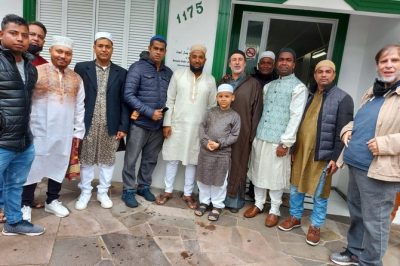Using his cultural influence to spread the message of Islam, many of Cesar’s hip hop colleagues followed his example and converted to Islam.
One of those new Muslims was Kareem Malik Abdul, a master of capoeira, a combination of dance and martial art created by African slaves during the slavery era in Brazil (1500-1888).
“Capoeira has a connection with Afro-Brazilian religions,” Kareem told Arab News. “At first I resisted the idea of going to the mosque when Cesar invited me, but then I saw how Islam changed his life.”
Jamal Adesoji, a 40-year-old biologist and rapper from the city of Pelotas, also discovered Islam after watching a movie about Malcolm X.
“I frequented mosques in Rio de Janeiro and Sao Paulo, and at times I felt discriminated against for not being Arab and for being black,” he lamented.

Over the years, Adesoji met many African Muslims and started to feel part of a joint identity.
“I studied and discovered that there were malês and even Islamic schools in my city in the 19th century,” he said.
“Islam first arrived in Brazil with the Africans, so it’s part of our identity — a part that was erased over time.”
Although Islam revived in Brazil at the hands of Arab immigrants, many black Brazilian converts were now taking the lead.
“Although Brazilian Islam was consolidated by Arab immigrants, now things have changed,” Syrian-born Jihad Hammadeh, a prominent sheikh in Brazil, said.
“Some time ago, it was unthinkable that a convert could assume leadership of an Islamic institution. Now it’s more and more common.”
In a government census in 2010, 35,000 Brazilians declared themselves as Muslim.
However, the Islamic Brazilian Federation puts the number at around one and a half million.




